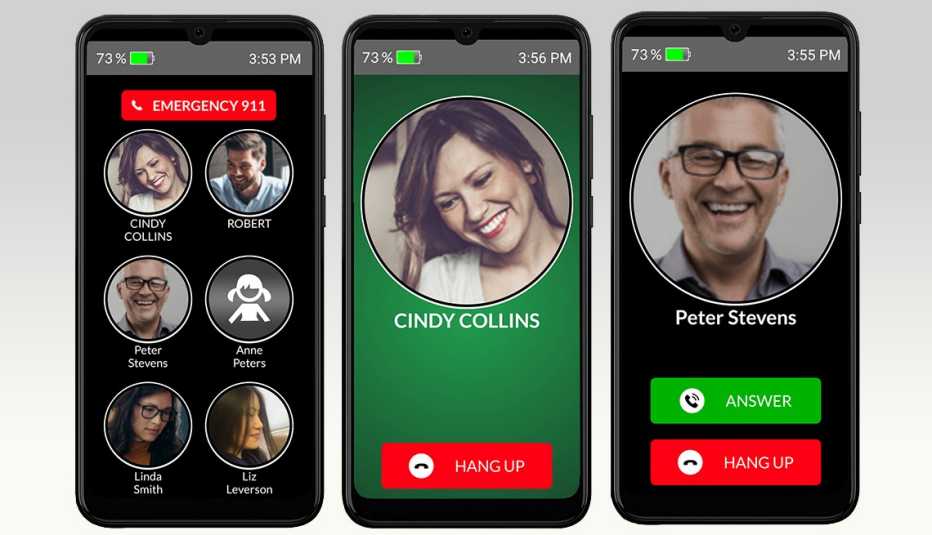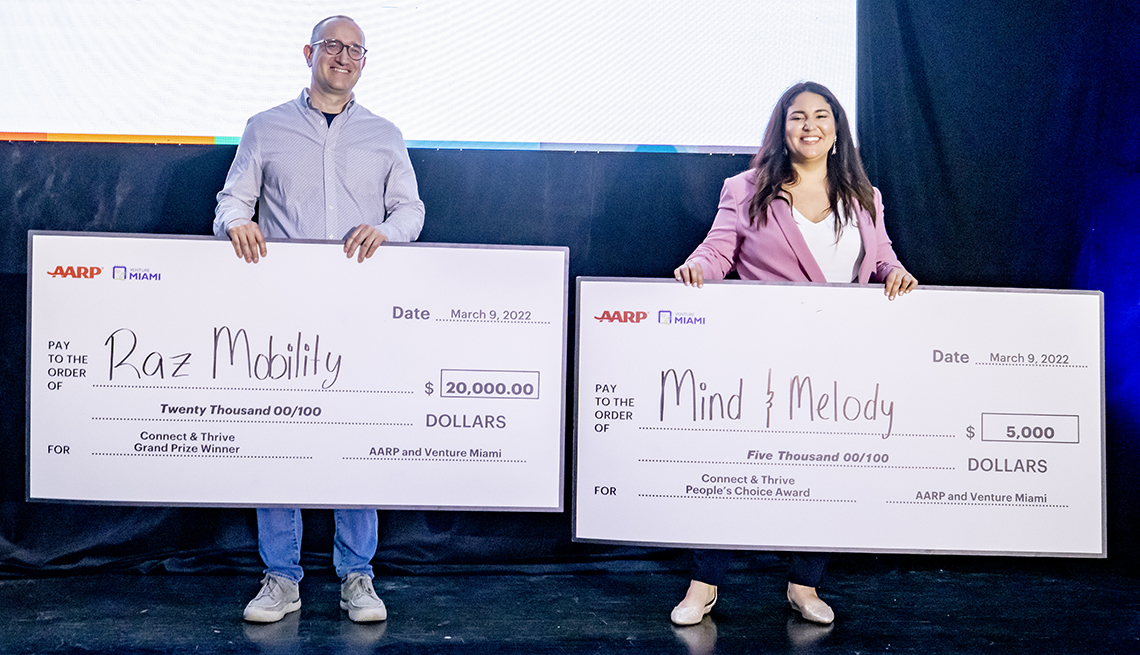AARP Hearing Center
Almost everyone communicates with friends, family and the world at large through voice and video calls, text messaging and social media — in other words, by using our smartphones.
But imagine what happens if these same folks start to suffer from dementia so that using the phone becomes increasingly complicated. They end up socializing less and feeling more isolated.
RAZ Mobility is attempting to solve this problem with the RAZ Memory Cell Phone, a one-touch-dial picture phone designed for people with memory loss, Alzheimer’s and other forms of cognitive decline.
The Tysons Corner, Virginia–based startup beat out five other finalists for the $20,000 top cash prize at a Connect & Thrive Pitch competition held earlier this month in Miami. The event is a collaboration between AARP Innovation Labs and a team called Venture Miami that was assembled by Miami Mayor Francis X. Suarez. The aim of the contest: come up with innovative digital solutions to combat loneliness and social isolation.
The RAZ Memory Phone has a single always-on screen with six named pictures on it associated with a contact that the user of the phone can call with a tap.


Caregiver controls it remotely
A caregiver, typically an adult child or spouse, controls the phone through an online portal or app, uploading pictures, managing contacts, sending reminders and handling all the settings. The caregiver can disable volume rockers and even the power button, and the person using the phone doesn’t have to fret about operating system updates, settings, unwanted notifications or voicemails.
“No other cellphone in the world provides caregivers this much control from afar and makes it as easy as it does for a senior with dementia to stay connected,” RAZ Chief Executive Robert Felgar said during the Miami event, adding that RAZ plans to add video calling capabilities and health services in the future. The phone has a dedicated button for dialing 911.





































































